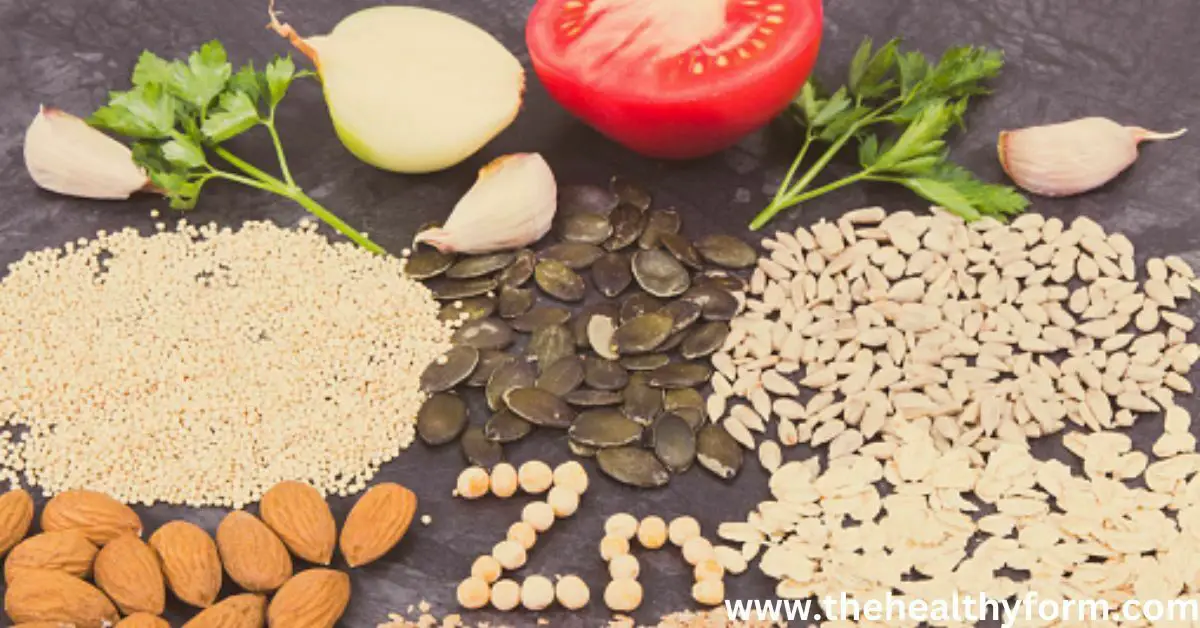Weight Management: A Comprehensive Guide
You’re ready to take control of your lifestyle and make a real impact on your health. But it’s hard to know where to start regarding weight management. It can be hard to make sense of all the conflicting information—from dietary advice to workout tips. How do you create a strategy that works for you?
It all starts with understanding the basics of weight management. In this article, I’ll explain everything you need to know about managing your weight and achieving your goals. We’ll look at the different types of weight loss plans, how to set up an effective exercise plan, tips for creating a healthier diet, and strategies for building healthy habits that will last. Ready to get started? Let’s dive in!

What Is Weight Management?
Weight management is managing your weight by controlling and owning your diet and lifestyle. It involves balanced nutrition, exercise, and other healthy lifestyle practices to achieve well-being. Depending on your personal goals, it could mean losing, maintaining, or gaining weight.
Weight management isn’t just about looking good in your clothes; it’s also about improving your overall health. That means it requires a long-term commitment to healthier habits and taking charge of the number on the scale. This two-pronged approach is the best way to reach your weight goals safely and sustainably.
Whether you want to lose, gain, or maintain weight, a comprehensive program that includes balanced eating habits and positive lifestyle changes can help you reach those goals for good. Weight management is a journey that entails consistency and dedication to create new habits that will carry through into your future and help you lead a healthier life.
Weight Management and Nutrition
Nutrition plays a crucial role in weight management. Eating the right foods in the right amounts is essential for healthy weight control. Ensure to include plenty of fruits, vegetables, whole grains, lean proteins, and healthy fats. These provide important nutrients and break down slowly to energize you and reduce cravings throughout the day.
Drinking eight to ten glasses of water daily can also help flush out toxins, improve skin health, and control hunger. Keep track of your food intake and ensure you consume fewer calories than you burn daily. You may want to consult a nutrition expert who can advise you on how many calories you should consume for your lifestyle and fitness goals.
Meal Planning for Weight Management
Meal planning is an essential part of successful weight management. But it can be daunting if you’re not sure where to start. Here are a few quick tips to help you get started:
Get Educated
Knowledge is power; the more you know, the better equipped you will be to make healthy decisions regarding your eating habits. Do your nutrition research, find out which food groupings can benefit your health and weight management, and learn which types of food are best avoided.
Pick a Day
Choose a day of the week that works for you to plan the meals for the week ahead. Pick one or two days to prepare healthy meals in advance and cook larger portions so that there are leftovers for other meals during the week.
Don’t Skip Breakfast
Starting your day with a protein-rich breakfast that includes complex carbs provides long-lasting energy throughout the day, helping prevent overeating later. Try having combinations such as oatmeal with nut butter, avocado toast with eggs and spinach, or overnight oats with fresh fruit.
Shop Smart
Whenever possible, buy organic produce and unprocessed foods like lean proteins, whole grains, nuts & seeds, legumes, etc. Check nutrition labels – look for low sugar and sodium levels and ingredients you recognize. Stick mostly to what’s around the grocery store’s perimeter, as these are typically less processed items. Having all these ingredients on hand makes it even easier to meal plan!
Dietary Supplements for Weight Management
Supplements for weight management can be a great addition to your daily routine, but it’s important to understand that they are not the only method for achieving a healthy body weight. A balanced diet and regular physical activity are the foundations of any successful weight management program. However, supplements can help you reach your goals faster by providing essential nutrients that may not be available in food or sufficient quantities.
When choosing dietary supplements, it’s important to choose high-quality products that contain pure and unprocessed ingredients that have been shown to affect health positively. That being said, here are some of the most popular supplements used for weight management:
Probiotics
These beneficial bacteria can help support healthy digestion and regulate appetite, key components of any successful weight-loss program. Probiotics also boost immunity and can help offset the adverse effects of stress on the body.
Protein powders
Athletes and fitness enthusiasts often use these powders as an additional source of protein, which helps with muscle-building and recovery after exercise. They also help keep hunger at bay for longer periods and can aid in reducing calorie intake overall.
Fiber supplements
Fiber is essential for digestion and helps regulate blood sugar levels, which can prevent cravings caused by dips in blood sugar levels throughout the day. Fiber is especially important when cutting calories as it helps maintain fullness without adding extra calories to your diet.
Essential fatty acids (EFA)
Not all fats are bad – EFA’s like Omega 3’s can help with fat loss by decreasing inflammation, helping to maintain hormone balance, assisting with concentration, and slowing digestion.
Exercise and Weight Management
Exercise plays a major role in successful weight management. Regular physical activity allows you to burn more calories, and this can be used to help you lose weight—or maintain your current weight. Exercise also helps to keep strong bones, muscles, and joints, plus it helps to reduce stress and improve overall mood.
But how much exercise do you need? The good news is that even light exercise can help. Studies have shown that 30 minutes of moderate daily activity can contribute to successful weight management. Plus, when you combine regular exercise with a healthy diet, the results are even more beneficial!
Benefits of Exercise
Here are some of the most important benefits of regular exercise as part of your weight management plan:
- Boosts metabolism rate
- Improves blood circulation
- Reduces body fat
- Strengthens bones and muscles
- Improves cardiovascular health
- Increases energy levels
- Enhances mood and reduces stress levels
Developing Healthy Habits for Long-Term Weight Management
Building healthy habits is key to long-term success in weight management. While this can be tough, especially if you’re used to old habits, you’ll be well on your way by taking small steps and being consistent.
Creating a Routine
Creating and sticking to a routine that works for you is essential for weight management. This could include setting dedicated times for meals and snacks, meal prepping in advance so you don’t have to make unhealthy choices due to lack of time or hunger, getting enough sleep every night, exercising regularly, and drinking plenty of water throughout the day. A routine helps keep you on track and reduces the risk of slipping into old habits.
Eating Intuitively
Another important component is eating intuitively. This isn’t a diet—it’s about listening to your body’s signals and understanding what it needs to fuel itself while also reaching your health goals. If you pay attention, it’s usually pretty easy to tell when your body needs energy or responds well to certain foods, so try not to ignore these signals. Eating intuitively also involves being aware of your portion sizes and allowing yourself occasional treats in moderation!
Ultimately, developing healthy habits for long-term weight management requires consistency and awareness, but with patience and dedication, it will become second nature soon!
FAQ about Weight Management
Some of the most common questions people have about weight management are:
How do I know if I need to manage my weight?
A good way to determine if you need to manage your weight is to calculate your body mass index (BMI). If your BMI falls within the overweight or obese range, you may benefit from weight management.
What are some benefits of weight management?
Weight management benefits include improved overall health, increased energy and stamina, reduced risk of chronic diseases such as diabetes and heart disease, improved mental health, and improved self-esteem.
What are some healthy ways to lose weight?
Healthy ways to lose weight include reducing calorie intake, increasing physical activity, eating more fruits and vegetables, drinking plenty of water, and getting enough sleep.
How much weight should I aim to lose per week?
A safe and sustainable rate of weight loss is 1-2 pounds per week.
Can I lose weight without exercising?
Yes, it is possible to lose weight without exercising by making dietary changes and reducing calorie intake. However, combining a healthy diet with regular exercise can lead to better and faster weight loss results.
Conclusion
Weight management starts with good information, from understanding the importance of hydration and nutrition to building a fitness routine that works for you. Taking the time to understand the process and to plan accordingly can be quite beneficial to achieving your desired results.
Remember, while fast and easy solutions may sound enticing, there is no shortcut to managing your weight. Focus on slow and sustainable progress, supported by healthy habits, and you will reach your goal. Stay committed to the journey and stay mindful of what’s happening with your body and mind each step of the way. You can get your weight management goals with the proper steps and dedication.





